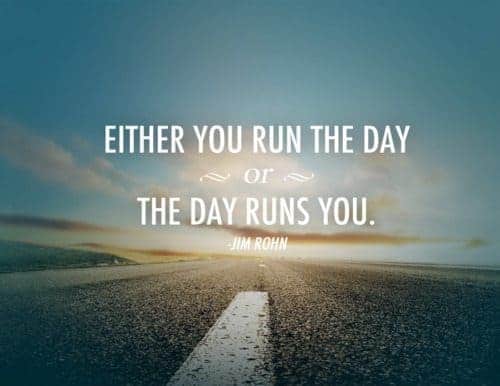Getting In The Zone: 10 Strategies To Help You Perform Under High Pressure
How can you get in the zone and handle pressure like a champ?
Let’s start with these wise words from Kobe Bryant:
“Everything negative – pressure, challenges – is all an opportunity for me to rise. Pressure is not real, pressure is your ego, I haven’t dealt with it since I can remember.” – Kobe Bryant
What does In The Zone mean?
Picture this… It’s the 2002 World Cup qualifier.
England is losing 1-0 to Greece, and England needs at least a draw to qualify.
Greece concedes a free kick right outside the penalty box in the dying minutes.
England’s renowned free-kick taker, David Beckham, steps up.
He places the ball down, takes a few deep breaths, and waits for the referee to blow the whistle.
Many England fans are in despair as they know it’s their last chance to qualify.
The pressure is unbearable.
Fans are in anguish, and the stadium is on edge… Beckham keeps his composure, takes his position, and blasts the ball into the top net of the goal!
Truly sublime!
If you haven’t seen it, here it is:
Moments like this are truly exceptional; they uplift our spirits, inspire us, and leave a moment in time that won’t be forgotten.
Keeping calm and clear in high-end pressure situations is a skill and NOT always that easy, especially as we raise the stakes.
Whether it’s giving a presentation, performing a musical piece, playing a sport, or entering a job interview, there are skills and strategies we can implement to help us perform at a higher level.
Setting a Strong Foundation—Repetition, Repetition, Repetition.
One of the most effective ways to increase your performance in anything is simply by showing up and practicing!
This may sound extremely obvious, but it can often be discounted.
Some people want all the glory but are not willing to put in the time to achieve it.
So repetition, repetition, repetition cannot be overlooked.
It’s the cornerstone of executing the task at hand.
Moving Practice To Performance
With a strong foundation in practice, our next task is to convert that to the match or performance.
A classic example is a musician.
They practice for many years in their bedroom to hopefully, one day, play for hundreds or thousands of people.
Their next step is to then move that playing to the stage.
The Paradox of Performance
Let’s just quickly address one area that can cause many people to trip over when trying to perform at their best.
Wanting to perform at perfect standards can cause problems if it’s not addressed and managed.
We want to create an environment where we can push for our best performances and aim for a high level/standard but have a heavy level of perspective whilst doing it.
So if we have a bad day at work or at the session, we can quickly turn ourselves back around and get back to it.
Sometimes, the need for perfection catches up with us.
There’s no such thing as perfection.
So being kind to yourself is key.
We should always aim to do our best and focus our attention on the process.
This was a game changer for me personally.
It’s simply a change of mindset, where dedication is balanced with an equal amount of perspective.
Taking Off The Pressure and Getting in the Zone
One of the most effective ways to take the pressure off is to simmer the amount of focus on yourself.
This is a little paradoxical, but the best way to do it is to focus on your main mission.
Some performers (instead of focusing so much on themselves) switch their attention to entertaining the crowd, giving them a great evening, or offering a product or performance that can impact their lives.
This can be especially helpful for entrepreneurs.
Focusing on their overall mission can help keep them on track when the challenges come.
It also eases the pressure THEY PUT ON THEMSELVES!
So let’s look at 10 techniques to help you get in the zone and apply them in any pressurized situation:
10 Strategies To Help You Get in the Zone
1.) Visualization
Visualization plays a huge part for many athletes and performers.
Simply put, it’s the ability to imagine the desired outcome you would like by mentally running through your performance, bit by bit.
This is a great technique for many golfers, basketball players, musicians, etc., who clearly visualize the outcome they want.
A study by Edmund Jacobson proved how effective visualization truly is with a set of basketball players.
Using highly sensitive equipment, he could detect subtle muscle movements when players visualized certain activities.
These movements were like how they would perform on actual tasks.
2.) Emotional EQ + Visualization
Another great way to use visualization is by applying some emotional intelligence along with it.
Emotional intelligence is exactly what it says on the tin: the ability to manage and express your emotions clearly, intelligently, and concisely without getting wrapped up in them.
So if we use a positive emotion, such as joy or confidence, with visualization, this improves our ability to access that emotion once we perform.
You can clearly express this in your visualization exercise if you know exactly how confidence feels.
A great way to do this is to have two parts to the visualization.
You can use a previous situation where you had confidence, go back to that situation, and hold the emotion.
Then use that same sentiment with the new scenario you are working on.
The idea here is to really feel the passion and get familiar with it.
This helps you in the zone.
3.) Movement
Pay attention to yourself and the way you position your body.
Re-setting your posture under pressure can massively affect your performance.
Take Cristiano Ronaldo’s body positioning when he steps up to take a free kick.
With Ronaldo being a ‘J’ shape kicker (direction of the kick), he inputs greater power into the ball in the kick’s direction.
His upright posture gives him a ‘power’ stance that can also add huge mental benefits.
Social psychologist Amy Cuddy has done some phenomenal work on body language and how it affects our testosterone and cortisol levels in the brain. Fascinating!
4.) Meditation
In any pressurized situation, being able to regulate your thoughts and emotions is HUGE.
Meditation can be a great tool to keep your emotions and impulses at bay during the performance.
Restful alertness is the key here: with training, we become more and more aware of our thoughts and emotions.
This will help us achieve high performance and respond more effectively.
5.) Slow Down Your Response
This can be a fantastic way to not overthink the situation you’re performing in.
Develop times to slow yourself down, so you can make better decisions instead of thinking impulsively.
6.) Language
Re-frame the situation.
A healthy way to increase your performance is the way you shape the circumstances.
Many performers still get unnerved before a performance, but it’s how they manage.
The key is that they use it to their advantage.
Before many of his boxing fights, Mike Tyson would be extremely nervous.
But his coach would say:
“The hero and the coward both feel the same thing, but the hero uses his fear, projects it onto his opponent, while the coward runs. It’s the same thing, fear, but it’s what you do with it that matters.”
7.) Boxing the Inner Critic
This can be a very helpful technique when any doubt arises before a performance.
Our inner critic may point us to what ‘may’ go wrong and why we can’t do it.
One way around this is to box the inner critic by reinforcing four other powerful reinforcements:
- Powerful words (affirmations),
- Powerful physiology (emotional intelligence and power posing),
- Strong focus (process-driven) and,
- Visualization (you have pictured the desired outcome over and over)
With these four areas, the inner critic simmers, and we can get in the zone.
8.) Being In The Now
Staying present during your performance can be an extremely helpful way to keep you in the zone.
With a strong foundation in mindfulness (the ability to let thoughts come and go without getting lost in them), you can stay in the NOW and focus on the performance at hand.
9.) Befriend the Moment
Simply changing your relationship to the perceived pressure can really impact your performance.
See it as a challenge: a fun, enjoyable, and exciting game.
This can help take the seriousness out of the performance, so we don’t choke: many times, it’s NOT a do-or-die situation.
10.) There are many opportunities
Think about how many times you have to get it right.
The band Coldplay got turned down by over 20 record companies, but they kept going.
If you put yourself out there, you will have other opportunities and stay proactive.
The irony is that you feel less pressure knowing there will be other opportunities.
These are 10 of the many strategies you can develop in your arena.
Start with one, and see how it can help with your development and training to get in the zone.
Step into your greatness today!











